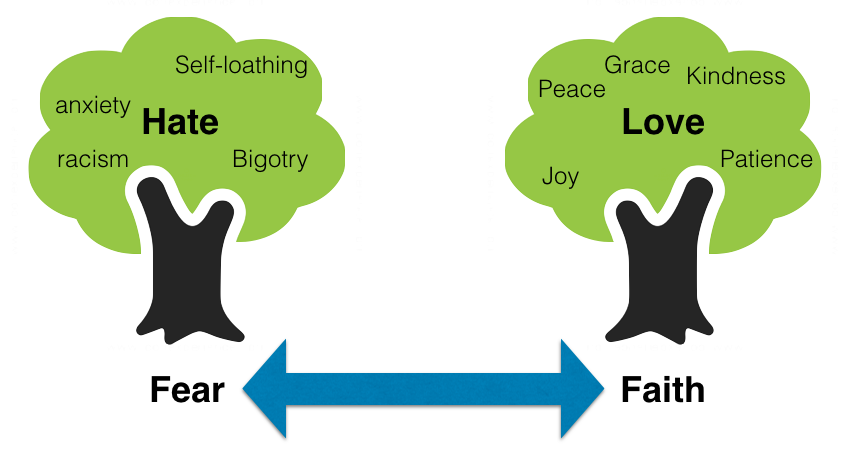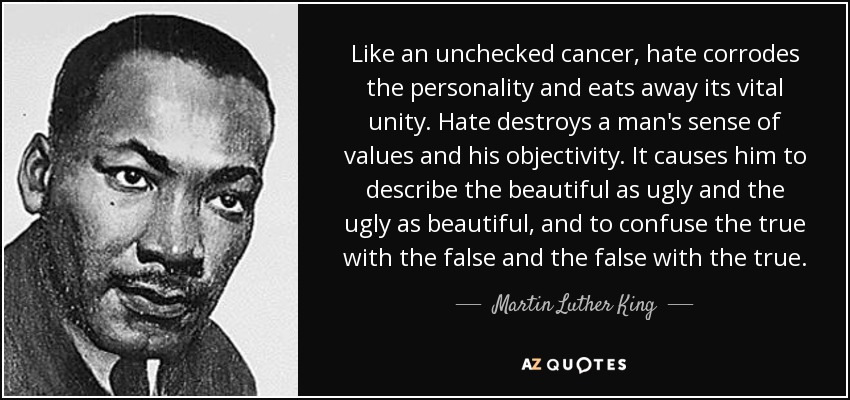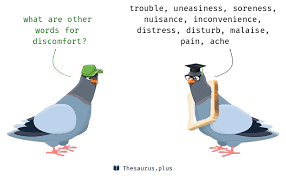Reason’s I have not been blogging: work, studying for a very difficult exam (AKA facing literally my biggest fear in my entire existence), engagement/wedding planning & renovating/moving/transitioning into a new home. However here I am, finally slowly down and coming back to self-care. Feels like a challenging sigh of relief.
Problems are not the problem, coping is the problem.
–Virginia Satir
I wanted to write about Coping skills today because it occurs to me that so many of our behaviors exist out of ‘coping’. For the majority of us, it is easy to get whisked away at the whim of our busy lives, and it is more difficult for us to continue to be intentional with our actions, behaviors and time on a daily basis. The problem with getting whisked away with our busy lives is that becomes less intentional, which then leads to increased anxiety, increased stress, decreased self-care; which then has a spillover effect into decreased relationship satisfaction with our partners, our friends, our family–the list goes on.
Actions = what we do
Behavior = how we to respond to the environment/people; synonymous with the word “actions”
Time = The degree or extent to which we fill our actions & behaviors with (AKA what do we find valuable?)
What does a “Coping Skill” look like? and What is it?
It is essentially a behavior that has been modelled or conditioned at a young age in response to a situation that has occurred (typically aversive event) or due to a negative state of being (aversive emotion). These actions or reactions are modeled by our environment, our childhood, and whoever raised us. In layman’s terms, it’s the way we respond to a aversive event/emotion.
Coping Skills can look like:
- Yelling
- Shutting Down (AKA Stonewalling according to Gottman)
- Saying hurtful words
- Staying silent in response to someone
- Yoga
- Doing Work
- Exercise
- Resilience
- Showing Grace to another individual
- Showing vulnerability
- Going out with friends
- Eating Food, yes eating in general.
- Doing Drugs
- Journaling
- Social Media
- Watching TV
- Gardening
- Playing Games
- Taking Deep Breaths
- Art
- Taking a bath
- Dancing
- Drinking Wine/Alcohol (not necessarily an alcoholic)
- Smoking
- Crying
- Meditation
- Reading growth books
- Listening to growth podcasts
As you’re reading some of these, you may categorizing one in a ‘bad’ category and one in a ‘good’ category such as meditation as a good coping skill and saying hurtful words as a bad coping skill. I want you to veer away from “good or bad” and more to “why”? What determines if a behavior is unhealthy or healthy is dictated by the degree or amount you engage in these, when you engage in these, and most importantly why you engage in these. If I spend 8 hours a day meditation (assuming it’s not my job) to the point I am neglecting my partner or parents, that isn’t healthy. However if the frequency of me stating hurtful words during an argument with a partner occurs only 1x a month presently versus 15x a month in the past, is that really a bad or unhealthy thing (keeping in mind we are only human)? Context matters.
The Why.
Why is understanding this important?

This is the gold right here. We engage in coping skills as a result of a person, environment, memory, or situation that has evoked a need to release, distract, or manage. Essentially, it helps us to minimize and deal with stressful situations so that we can continue on with life =)
Here’s the problem:
Sometimes media, society, basically the world around us consistently send us the message to be like robots. Work, make money, stomp on others so you can get to your destination, etc. We are humans, not robots. We do not want to become a robot: automate our brains and bodies to avoid/escape so repetitively to the point we don’t even realize we are doing it anymore. Repetitive exposure creates apathy to feelings and connection. We do want to be humans: less external, more internal focus. Acknowledge our actions, thoughts, feelings. Accept our flaws and mistakes, and understand how those mistakes flourish our growth and connection.
The problem is that the majority of our parents, our grandparents, and past generations (especially those of immigrant parents such as mine) were not taught how to engage and balance healthy coping skills.
But wait–there’s more.
Emotions & feelings, essentially your heart, play a big role in this too. I want to say that this has a direct correlation with understanding how to get to a point of being intentional. When we want to avoid pain, fear, disappointment, shame; when we want to distract ourselves from sadness, or simply cope because, we just don’t know what to do because we feel helpless— this leads to dangerous and dark waters. Fear is what keeps us in these dark waters. However here is the contingency for staying in fear:
This leads to ego, to isolation, to anxiety, to negative and toxic thoughts about ourselves; it leads to pushing others away, disconnection, and potentially even depression if you avoid for long enough. It can lead to excessive TV, burying your head in work, or even excessive exercise. Most detrimental though, is the effects that avoidance or distraction can lead to our own self-harm and self-sabotage, which inadvertently then harms those we love around us. Because how can we fully care for others if we don’t even know how to care for ourselves? Words and actions that harm our loved ones can’t be taken back and sometimes we don’t recognize the degree of our actions or words until it is too late and we face consequences that pay a bigger price than it was worth. At the end of the day it is a choice and an MO (motivation operation) that will determine whether you want to dig deeper or not.
Ask yourself:
- Ask why do I want to look into changing any habits? Listing out those reasons can help solidify your EO (established operation)
- Do your daily actions produce shame after you have engaged in them? (if you do feel shame that’s not a good sign)
- Has it hurt your health physically, mentally, or emotionally in any way? (i.e. eating a pint of ice cream and now your stomach hurts or you’re gaining a lot of weight?)
- What do your partners/friends/family say about your habits/hobbies? Their feedback can speak for itself at times
- Am I avoiding/ignoring other priorities or tasks? These don’t necessarily need to be addressed right away–but are you addressing them on a timely manner and appropriate consistency? (i.e. something as small as folding laundry, something as deep as acknowledging an emotion, or something as big as telling your partner big news that you are afraid to bring up).
- How often am I engaging in the behavior/action/hobby of interest? Is it to a healthy degree?
- Are these habits/actions helping me grow in any way? Are they life-giving? Are they energizing me?
The Upside/Antidote:
Just kidding, there is no single ‘antidote’ because every individual’s upbringing and situation is going to be different. However what I can share (mostly from experience) is that it is never too late, and it is never the end. There is always a light at the end of the tunnel if you choose there to be one. Habits can be changed. Pain can heal. And you can turn fear and avoidance into vulnerability and courage. It starts with being honest with yourself and figuring out what it means to love yourself, because that in itself takes humility and courage. As my class would say for test taking strategies, “GO WITH YOUR GUT, NOT YOUR BUTT”. The more we second guess an answer, the more likely it will be wrong. Or in this case, go with your heart, not your head. The head is great. It helps us rationalize and stay objective when we get too emotional and do not know how to handle those emotions. It helps keep things ‘in order’. It can keep us in check. The downside is that it can also distance us from those we love and fuel the addition or high we get from avoidance. It is a temporary toxic satisfaction. It is not going to give us the courage to stop avoiding or escaping our past, our bad habits, or to face our fears. It has to come from something deeper than a simple math equation.
Vulnerability
“Vulnerability is the birthplace of love, belonging, joy, courage, empathy, and creativity. It is the source of hope empathy, accountability, and authenticity. Vulnerability is not about winning or losing. It’s having the courage to show up even when you can’t control the outcome”
-Brene Brown
Courage
“Owning our story can be hard but not nearly as difficult as spending our lives running from it. Embracing our vulnerabilities is risky but not nearly as dangerous as giving up on love and belonging and joy—the experiences that make us the most vulnerable. Only when we are brave enough to explore the darkness will we discover the infinite power of our light.”
-Brene Brown
As you can tell, courage and vulnerability go hand-in-hand. As we start learning what it means to live out these 2 qualities, everything else honestly falls into place. It is a lot less work than you may realize it to be. The first step is always the hardest, but the journey itself (the good & bad) is what allows us to heal, grow, succeed, and showcase what we are actually capable of more than we could imagine. After you know the why, then you can start thinking of your solutions. The simplest solution for me was to make a list of bad coping skills I want to change on the left, and ones I want to increase/learn on the right. Use your self-awareness to your advantage to stop, and make an intentional decision (before shutting down, watching TV, etc) to veer to the right and engage in a right coping skill instead of your left coping skill. And always keep in mind your WHY. Or if that’s too difficult, you can train yourself to become automated and do the opposite without even thinking. Eventually, you’ll condition yourself so repetitively that it becomes a natural go-to!
As a personal testament, I did not get to where I am today because somebody drew out a road map for me, or told me what I should/shouldn’t do. It is not because I disciplined myself and told me I need to change X,Y, and Z. I did not learn the self-care habits I engage in today because one day I simply “knew”. It certainly was not because my parents modeled or taught me this either. It was because one day I decided it was time to use my courage to my advantage whether I thought I had it in me or not. I used my ability not to fear to try new things, dive into uncomfortable environments and conversations, and take risks to open up to others. I went with my gut, which at the time told me I had nothing to lose, only a lot to gain. And I have gained a lot– I gained healthier coping skills such as yoga, blogging, and therapy vs. T.V. Binging and getting bubble tea (although bubble tea has a comeback sometimes). Most importantly, I’ve gained a better relationship with my mom, a healthier relationship (that didn’t end in break up) with my now fiancee, more satisfaction with my work, and a better self-awareness of what contributes to my anxiety and stress.
If you want to know where to start, I highly recommend ensuring that you are defining emotions correctly, and understanding how to respond to them. Brene Brown’s “Atlas of the Heart” is one that I am currently reading that can be helpful as a stepping stone (as you can tell, I am obsessed with her work =D)
Benefits:
- Increases our empathy and compassion for others & those who engage in behaviors we don’t understand
- Allows us to set a better example as a parent, a brother/sister, a daughter/son AKA just being better human beings
- Increases empathy and compassion for ourselves
- Leads to better relationship satisfaction, work satisfaction, and overall life satisfaction
- Leads to a deeper understanding spiritually & emotionally (AKA increases our emotional intelligence, which then leads to better decision-making skills)
- Easier transition from bad habits to good habits (whether that’s eating healthier or speaking to someone nicer)
- Increases self-awareness and being intentional
- Leads to increase and better health
To conclude, per usual of most of my blogs, if you feel like you are already on this path or you are already doing this, I hope to challenge you to extend this to others. Can you pinpoint some “behaviors” you may dislike of others? Why do you think they engage in these behaviors? How and where do you think they learned these behaviors? Now try going back to a point where you have attempted to change a coping skill or a bad habit. However quickly did that dissolve? Were you able to “stop” it the next day? How easy was it? Were you even aware of it a year prior? How did you come to discover this was something you needed to change or shift?
At the end of the day, a individuals (aversive) behavior speaks louder about the pain, trauma, and thoughts they have about themselves than it does in regards to us. If we are able to make it about their story, and not ours, that is a good start to humanity and inadvertently showing ourselves more grace as well.
#brenebrown #copingskills #courage #vulnerability #badhabits #self-love



